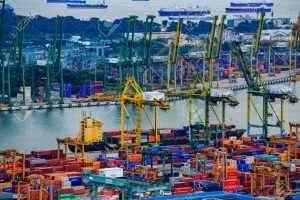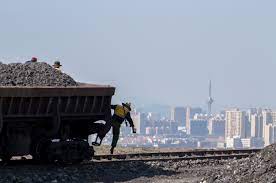
Que es un trader: ¿Qué tengo que estudiar para ser un buen trader?

It offers courses, tools and also events categorized according to their level of difficulty so that students can have first-hand knowledge of the ins and outs of this profession. Any person who commits capital with the expectation of financial returns is an investor. Common investment vehicles include stocks, bonds, commodities, and mutual funds. Fundamentals are generally gleaned from economic, industry-specific, and financial data and include economic data, industry trends, company news and events, and financial statements.
They must constantly monitor their current and potential positions to ensure that the risks they take are optimal. Traders must effectively use their stop-loss and limit orders to maintain profitability and margins. Foreign exchange trading platforms match currency buyers and sellers in the spot, forward, and options markets.
Investopedia requires writers to use primary sources to support their work. These include white papers, government data, original reporting, and interviews with industry experts. We also reference original research from other reputable publishers where appropriate. You can learn more about the standards we follow in producing accurate, unbiased content in oureditorial policy.
The artisanal fishermen supply the local markets and participate, through traders, in more distant, larger fish markets . Trading futures and derivatives, it could have been a jungle of aggressive queue jumpers, seeking to trample their fellow traders under foot. In finance, a spread usually refers to the difference between two prices of a security or asset, or between two similar assets. Contrarian traders identify overbought or oversold conditions in conjunction with trend reversals.
Trading is a highly skilled profession that provides price discovery and liquidity in a multitude of financial markets, including stocks, bonds, currencies, commodities, or derivatives. Traders can either be entrepreneurs or work for investment banks, hedge funds, or proprietary trading firms. Also, they use various strategies and tools to look for opportunities as well as to exploit market inefficiencies or mispricing. Generally, swing trading is considered to be less risky than scalping or day trading because swing traders have more time to make decisions. News or events can affect the price trends of the swing trader’s portfolio. Trading in financial instruments produces price discovery, generates liquidity, brings out capital flows, and aids in price efficiency.

Through their activities, bootleg collectors and tape traders explicitly contest the commodification of popular music. Contango is a situation in which the futures price of a commodity is above the spot price. The offers that appear in this table are from partnerships from which Investopedia receives compensation. Investopedia does not include all offers available in the marketplace.
Sorry, you have been blocked
Arbitrage occurs because of market inefficiencies or temporary imbalances in supply and demand. Traders play a critical role in providing liquidity to financial markets. Their activities are essential for the smooth functioning of financial markets and the allocation of capital to productive uses. Traders are individuals who engage in the short-term buying and selling of a financial asset for themselves or an institution such as a bank, brokerage firm, or hedge fund. While there are labour unions that have attained some successes, farmers, artisans, petty traders and female workers have not organised effectively to demand economic opportunities. Agents holding money are referred to as money traders or buyers, whereas those with production opportunities are referred to as commodity traders or sellers.
High conviction in the trades are required, as the contrarian view is often unpopular. Fundamental information, or fundamentals, refers to data that provide insights into the underlying intrinsic value of the financial asset, such as a stock, bond, future, currency, or commodity. Traders can be contrasted with investors, who seek long-term capital gains rather than short-term profits.
Arbitrage refers to exploiting price discrepancies between two or more instruments or markets. Most young students who want to become traders do not know the path to take and the steps they need to follow in order to achieve this. The university careers most focused on this type of profession are economics, business administration and corporate management and mathematics. In this market an indirect economic mechanism will be used to slow traders down.

With this information, traders can even develop a contrarian view or find arbitrage opportunities. Traders employ many strategies to produce and maintain profitability. Some of these strategies include scalping, day trading, swing trading, event trading, and position trading.
Market sentiment can be attributed to factors such as economic and financial data, geopolitical events, or company news. The main objective of a trader is to generate profits by buying at a low price and selling at a higher price. What they buy and sell are financial assets that include stocks, bonds, currencies, commodities, and derivatives. The profit generation is achieved through various approaches such as fundamental, technical and quantitative analyses, which aid in identifying market trends and opportunities.
Sentiment
When markets are in a downturn, there is a high potential for traders to lose their jobs. To be a successful trader, people often need to attain specialized education, training, and experience, which can be time-consuming and expensive. Those traders who work for themselves may have a home office or may rent one. If that isn’t the case, traders will have roles in investment banks, brokerage firms, proprietary trading firms, asset management firms, hedge funds, or exchanges. Traders may work in the physical office or remotely, depending on the nature of the trading activity and the firm’s policies. Traders use a variety of strategies to generate profits, including scalping, day trading, and swing trading.
Their colleagues, clients, bosses, and other stakeholders need to quickly and effectively understand what their trader is saying so that they can make informed decisions. Trading is an intense profession, and traders need to effectively manage their emotions in a highly stressful environment. The psychological factor is decisive in the business of trading. However, not everyone with mastery of and knowledge of the mysteries of the financial markets have higher degrees such as mentioned above. Undoubtedly, the more extensive and complete our training is, the better are the tools and resources we can call. However, we’re not talking about a must-have requirement or magic formula to become a trader.

Event traders need to execute their positions quickly, seconds before the data release, to profit from the position. Also, event traders tend to use leverage to amplify their profits. The use of leverage comes with additional risks to the strategy. Traders need to have a deep understanding of the asset classes, market dynamics, and various strategies in these markets. They need to figure out how to process large amounts of data quickly and correctly to make informed decisions about the financial markets in which they trade.
They sharply increase the amount of price information available to individual traders, thus narrowing price spreads and reducing commissions. Most people who trade on their own account work from home or in a small office, and use a discount broker and electronic trading platforms. Their limits are dependent on their own cash and credit, but they keep all profits.
Many large financial institutions have trading rooms where traders are employees who buy and sell a wide range of products on behalf of the company. The company has the underlying risk and keeps most of the profit; the trader receives a salary and bonuses. Traders who participate in day trading are called active traders or day traders. This would appeal to people who like being in a highly dynamic space.
The Definition of a Trader
The main difference between a trader and an investor is the duration for which the person holds the asset. Investors tend to have a longer-term time horizon, while traders tend to hold assets for much shorter periods to capitalize on short-term trends. Stocks, bonds, currencies or foreign exchange, options, futures, commodities, cryptocurrencies, and exchange-traded funds are the most common type of assets that are traded. The asset class is dependent on the traders’ preference, expertise, and the market in which they operate.
Traducciones de trader
It should be noted that no trading strategy is foolproof; there are advantages and disadvantages to any trading strategy. Sentiment is developed through the quantification of surveys or polls. The data reflects optimism or pessimism in the financial markets. Other sentiment indicators are based on data comprising trading volume, price movements, and news coverage of financial instruments or markets. Contrarian trading involves analyzing market conditions and taking an opposing view of the prevailing consensus view of the financial markets. This is based on the premise that market participants often overreact to events, leading to significant price movements in financial markets.
Through trading, market participants converge toward the fair value of financial assets. Also, with trading, liquidity is generated, enabling the quick transfer of stocks, bonds, futures, commodities, and currencies. When using technical and market-timing information, traders analyze past and current market data to spot patterns and trends. This is to anticipate future price movements in assets such as stocks, bonds, futures, currencies, or commodities. This is essential to make informed decisions and be profitable in their activities. The types of information that traders access include fundamental, technical, or market timing, noise, and sentiment.
His/her job consists in setting quotes for sales and managing the risks stemming from this. It resulted from trading losses in derivatives by a single trader at the firm’s Singapore office. A stock trader is an individual or other entity that engages in the buying and selling of stocks. Swing trading is an attempt to capture gains in an asset over a few days to several weeks. Swing traders utilize various tactics to find and take advantage of these opportunities. These opportunities can occur in stocks, bonds, currencies, and commodities over different exchanges or geographical regions.
